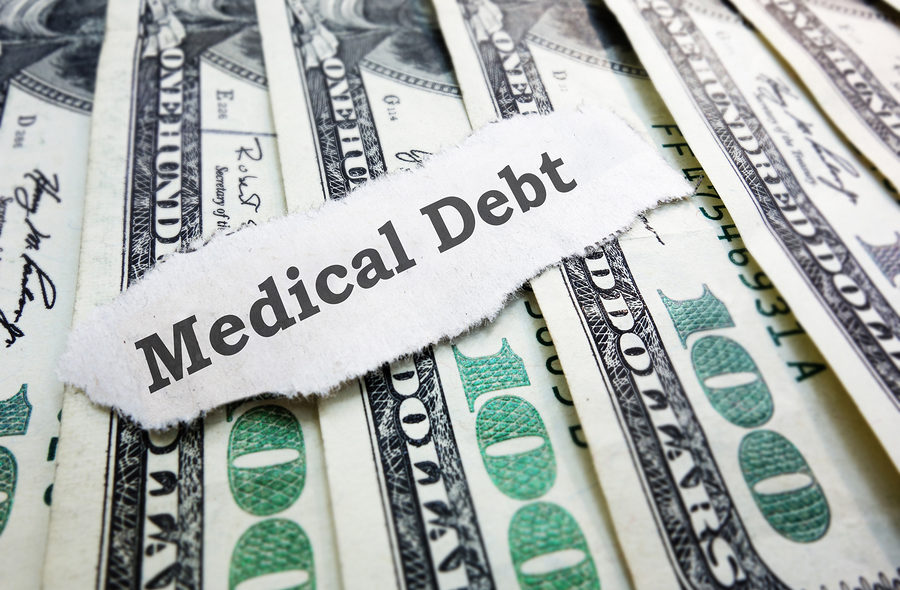As more employers lean towards offering their employees high deductible medical insurance plans, the cost of medical care is quickly becoming something many Americans cannot afford.
Insurance deductibles are not the only aspect of medical care that has skyrocketed in recent years. Drug prices have more than tripled in the last 12 years. Americans spend an average of $1,350 a year on prescription medication alone. If a patient is suffering from a chronic medical condition, such as diabetes, that cost is even more.
According to a recent study by Callaghan, Americans who took multiple sclerosis medications for their condition paid an average of $3,708 per year out of pocket for their medication. This same medication only cost $244 on average 15 years ago, which goes to show how much costs have gone up over the years.
The fact of the matter is being sick in America is more expensive now than ever before. Another study by Milliman, a national healthcare consulting firm, found that the average patient fighting lymphoma paid $3,700 in the 12 months immediately following the diagnosis. If the diagnosis was acute leukemia, the cost was more than $5,100 for medication treatment.
Someone can be financially stable and relatively healthy, only to receive a devastating cancer diagnosis, something that will not just hurt him or her physically and emotionally but financially, as well. According to the Hutchinson Institute for Cancer Outcomes Research in Seattle, cancer patients were twice as likely to file for bankruptcy. That diagnosis can easily set a person back hundreds of thousands of dollars, depending on their insurance coverage and the types of treatment required.
High deductible health insurance plans often put the patient in a tough financial spot, even if the person has basic health needs to meet, let alone a chronic condition that requires the person to regularly take medication. In some Western European countries, such as France and Britain, they have national healthcare systems that limit cost sharing for patients with certain chronic conditions. These systems make these prescription drugs available at no cost to the patients. However, the U.S., which has a federal law that prohibits high deductible insurance plans from exempting payment for these services. Patients have no choice but to pay for them in full until they reach their deductibles, which can be thousands of dollars later.
The result is many patients who have serious chronic medical conditions will not follow medical advice and will delay or even refuse treatment for fear of the cost that comes along with it. If someone is seriously injured and needs to receive emergency treatment, he or she may decide not to call 911 if that person has a high deductible plan. No matter how deep the savings may be in the patient’s health savings account, that one medical crisis could completely deplete that account, forcing the patient to charge these services or default on them in the event he or she cannot pay for them.
A recent national poll conducted by The Times found that American consumers who live in a household where someone has a chronic medical condition are twice as likely to have to cut spending on household expenses to pay for medical care. In fact, one in eight American workers who lived in a household where someone was chronically sick had to declare bankruptcy due to their medical bills. This same study showed that sick Americans were more likely to use less healthcare when their insurance plans required them to pay more out-of-pocket.
How is Medical Debt Handled in Bankruptcy?
In bankruptcy, medical debt is treated the same as credit card debt. Medical bills are listed as general unsecured debt and can be easily wiped out in a Chapter 7 bankruptcy filing. Making the decision to file for bankruptcy is never an easy one. It can be difficult to get past some of the myths associated with filing for bankruptcy. Sometimes by waiting, an individual facing a lot of debt can find himself or herself in an even worse situation. Filing for bankruptcy can help protect valuable assets, including your home, pension, IRA and social security. It will put an end to wage garnishment and any lawsuit being filed to collect on the debt, thanks to the protections of the automatic stay.
Those who have experienced illness or injury and found themselves overwhelmed with medical debt should contact an experienced Miami bankruptcy attorney. In bankruptcy, medical bills are considered general unsecured debts just like credit cards. This means that medical bills do not receive priority treatment and can easily be discharged in bankruptcy. Bankruptcy laws were created to help people resolve overwhelming debt and gain a fresh financial start. Bankruptcy attorney Timothy Kingcade knows how to help clients take full advantage of the bankruptcy laws to protect their assets and get successful results. Since 1996 Kingcade Garcia McMaken, P.A. has been helping people from all walks of life build a better tomorrow. Our attorneys’ help thousands of people every year take advantage of their rights under bankruptcy protection to restart, rebuild and recover. The day you hire our firm, we will contact your creditors to stop the harassment. You can also find useful consumer information on the Kingcade Garcia McMaken website at www.miamibankruptcy.com.
Related Resource:
https://www.latimes.com/politics/la-na-pol-health-insurance-sick-patients-high-bills-20190606-story.html


